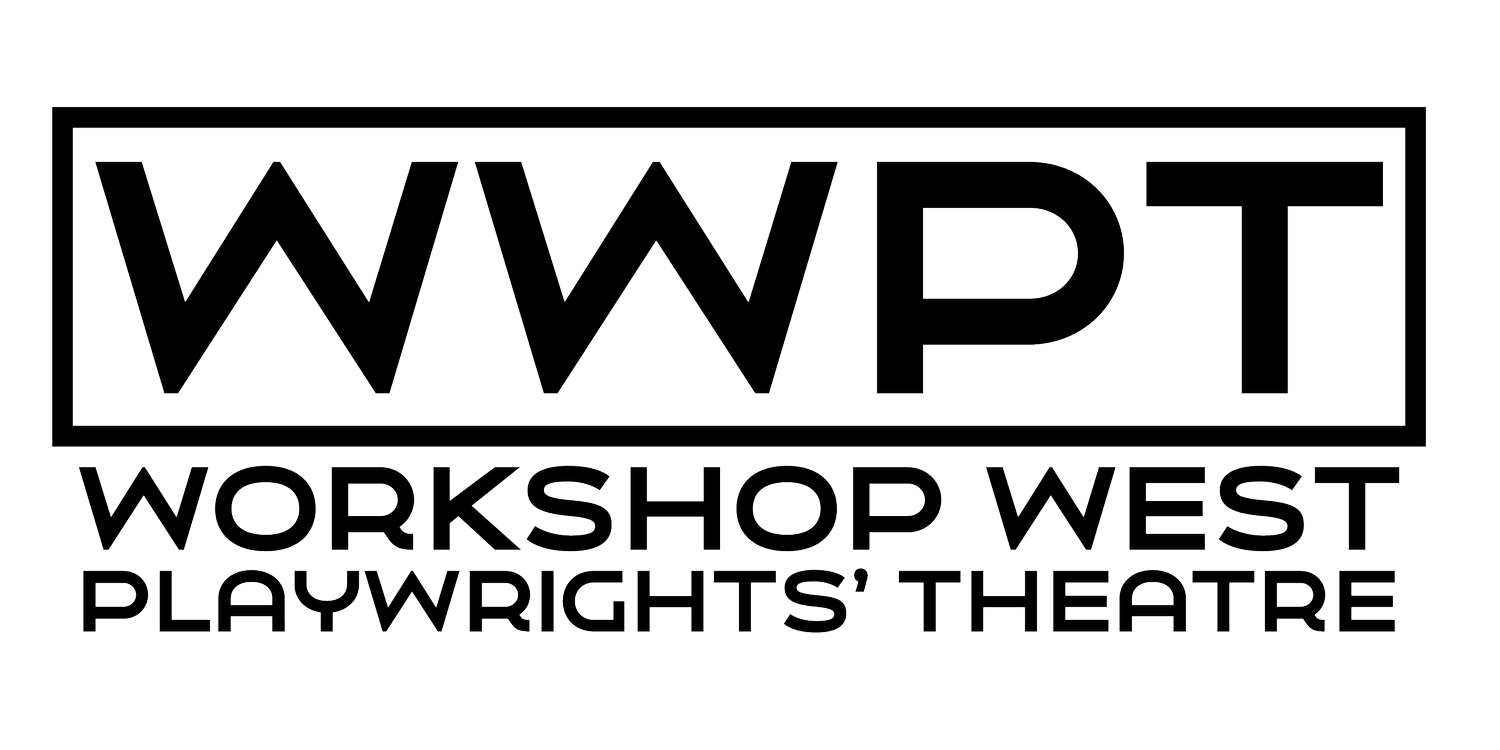A Community Resource
A Conversation with Michael Clark, Artistic Director 2006-2014
By Jonah Dunch
Michael Clark kicked off his tenure as Workshop West’s artistic director in an unconventional way: he had to cancel his first season.
“It was a pretty exciting beginning!” Clark remarks.
Coming from a successful term as the artistic director of Nakai Theatre in Whitehorse, Clark unknowingly stepped into a rocky situation at Workshop West. The company’s budget had fallen, and Clark had to close its doors to regroup.
“A huge challenge in running any theatre company is that it’s a non-profit organization,” Clark says, which means its funding is always in flux.
Starting out, Clark focused on expanding Workshop West’s offerings to produce more local playwrights alongside out-of-province work. He started an annual program called “Pitch to Play,” wherein playwrights anonymously submitted an elevator pitch for a play they wanted to write. Clark hired two actors to read the pitches at a public event. He and an expert panel picked nine plays, and the audience picked a tenth. The ten lucky playwrights had a week to write a scene from their play, which four actors read at another public event. Here the pool was narrowed down to five, writers’ identities were revealed, and their pieces received a year of intensive development. Workshop West produced several of these scripts, and many were their author’s professional debuts.
“My objective was to democratize access,” Clark says. “It was fashioned after how orchestras auditions musicians: they do it behind a screen and you can only hear the sound, you can’t see the person.”
Clark also developed a new focus on contemporary alternative theatre, such as devised creation. Events like the High Performance Rodeo and the PuSh Festival were presenting cutting-edge international work, and Clark wanted Workshop West to join the party.
“I realized young creators would need to leave Edmonton to really pursue their work,” Clark says. “We were losing people who wanted to work in that [nontraditional] way.”
In response, in 2008 Clark started the Canoe Festival, Workshop West’s showcase of contemporary work (which is now part of the Chinook Series). The festival ran in January, joining an emerging Western Canadian festival circuit for new touring performance works. On top of nontraditional theatre, Clark built connections with mid-career Indigenous artists in Edmonton.
“There had been small Indigenous theatre companies, but they were always built on the backs of people who wanted to do them,” Clark says. “The idea was to use Workshop West as an umbrella to foster theatre creation in Edmonton.”
Workshop West hired Reneltta Arluk, Ryan Cunningham, and Trevor Duplessis to curate the Rubaboo Performance Gala, a night of Indigenous theatre, music and culture. Emerging from the success of this event, Ryan Cunningham and Christine Frederick founded Alberta Aboriginal Performing Arts, which produced its 10th Annual Rubaboo in 2019. Clark and Keltie Forsyth, Workshop West’s general manager at the time, also helped Arluk start up Akpik Theatre in Yellowknife. Cunningham later became artistic director of Toronto’s Native Earth Theatre, while Arluk is now Director of Indigenous Programming at the Banff Centre for Arts and Creativity.
“It was all about trying to create opportunities for voices to find their way onto Canadian stages,” Clark says. “When you run something like Workshop West, you’re stewarding a community resource. My objective was to try to spread that resource as widely as possible amongst artists who could use its support to create more theatre.”
Workshop West produced two new plays most seasons during Clark’s tenure. He also made it a company priority to pursue subsequent productions for all of its playwrights’ premieres, so playwrights could deepen their work with what they’d learned in the production cycle and from audiences. Clark now counts 19 subsequent productions of plays that Workshop West premiered during his tenure, mostly in Canada, but also in England, the United States, and Canada.
“My philosophy as a play developer was that the premiere is not the place where the development needs to end — that’s the first time you get it in front of an audience,” Clark says. “That’s where the steepest part of the learning curve can happen, and if you can find subsequent productions to continue developing a play after its premiere, you can make it a better piece.”
After presiding over this expansive period, Clark left Workshop West in February 2014. Suffering an undiagnosed concussion from a car accident in 2010, Clark found himself struggling increasingly with the demands of artistic direction.
“Burnout is a significant problem in Canadian theatre,” Clark says. “The volume and complexity of work artistic leaders undertake is massive. They function at a level where if they were in traditional fields, they would get paid in six figures.”
Clark says he hopes for Workshop West to find itself in an exciting, rich environment where his successor, Vern Thiessen, and the rest of the team can do the work they want to do.
“I know how hard it is to be an artistic director, and I admire anyone who does it,” he says.
For Clark, what best encapsulates the spirit of his tenure at Workshop West was his production of Collin Doyle’s The Mighty Carlins. A comedy about alcoholism, the play opens with expletives and racist rants from its objectionable protagonist, which for four years led other theatre companies to shy away from producing it. But Clark saw the script’s potential, taking it to a successful premiere. The play and playwright have experienced enormous success since. The Mighty Carlins has so far received four subsequent productions and a publication — all because Workshop West took a chance.
“Workshop West’s job is to put the expression of the artist’s work ahead of its marketability,” Clark says. “Workshop West’s work is research and development for the Canadian theatre community.”


